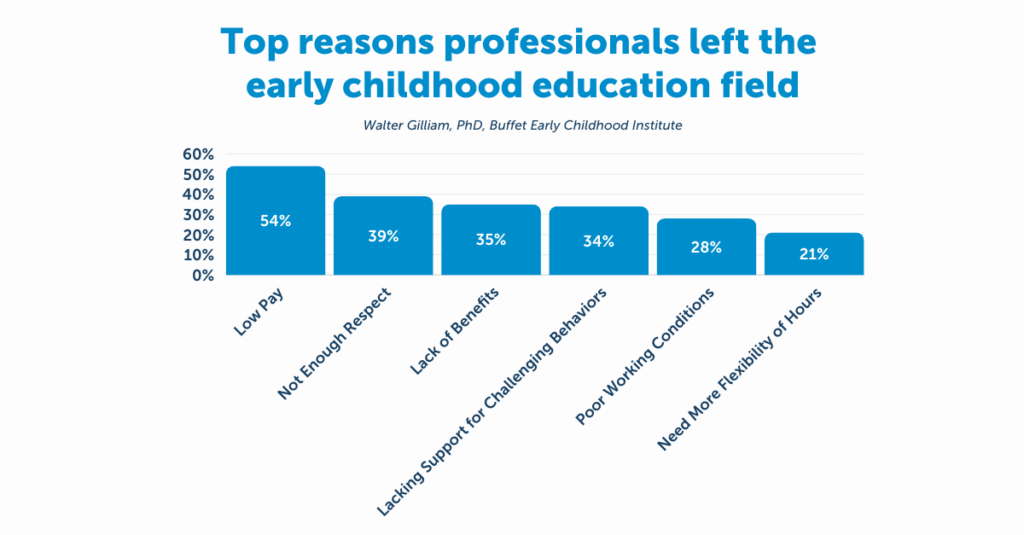
Intentional Leadership and Workforce Wellness at Malaika Early Learning Center


Malaika Early Learning Center is unique in many ways—in the ages of children it serves, and in its leadership, staff and families who form a close-knit community. Malaika serves children ages 6 weeks to 12 years old in its early childhood private education program and offers an early elementary private education program for scholars in K4 – 3rd grade.
The center’s mission is “to work collaboratively with families to establish a strong academic, social and emotional foundation in the lives of Milwaukee’s economically disadvantaged children, all of whom deserve opportunities for excellence in education regardless of their socio-economic situations or family structure.”
Tamara Johnson, MEd, is Malaika’s executive director. We had the chance to chat with Tamara about workforce wellness, her inspirations, and insights gained from supporting and working with her staff, 90% of whom return annually, with an average tenure of 8 years.

Tamara is a highly accomplished leader in early childhood education, currently serving as the executive director of a facility focused on programs for children from birth to age 8. She holds advanced degrees in early childhood administration and human services, along with multiple leadership certifications, and has served on numerous boards, including the National Association for the Education of Young Children (NAEYC) and the Black Child Development Institute (BCDI). Her achievements include participating in prestigious leadership programs such as the Children’s Defense Fund Emerging Leaders Project and NAEYC’s Legacy Leadership program, as well as contributing to professional publications. Tamara's dedication to early childhood education has earned her recognition, including the Milwaukee Times Black Excellence Award in 2020.
A Focus on Mental Health
As Malaika’s leader, Tamara’s responsibilities include infrastructure but success in her work is all about relationships, care, intentionality, and flexibility.
Tamara strives to activate these principles in how she is, and in how she and her community are together. She emphasizes the positive workplace climate at Malaika, emphasizing how the close-knit environment has helped the team navigate through trauma and mental health challenges, especially during and after COVID-19. She believes that Malaika’s positive and supportive work climate has been their saving grace.
We function as a caring family, we wrap our hands around each other automatically, whether it be something big or something small we are facing. We operationalize this daily and in the overall scheme of things, that's what has carried us through trauma, mental health issues—any challenges we have had to address.
Tamara Johnson
Tamara explains that the workplace climate at Malaika has always been positive. She credits the Fostering Futures project in 2012 as helping Malaika to hone its intentional focus on mental health and trauma-informed care, which later became a foundational aspect of their operations. The project was a statewide pilot that included only three counties, with Malaika being one of the participating organizations. The project emphasized trauma-informed care, which became more defined for Malaika. It helped Tamara and Malaika understand the historical context of trauma and how to support families experiencing traumatic events.
While not a formal part of this project’s focus, Tamara shares there was a natural evolution of the discussions with fellow participants about the health and well-being of the workforce. They discussed workplace climate and extended their reflections to include the messaging they were putting out as organizations, not just for families, but about “who we are and what we do.”
How we show up for each other as coworkers and as a team is what we message to families and impacts what we do with and for them.
Tamara Johnson

Operational Changes
Tamara says the project led to operational changes at Malaika, as they began to implement trauma-informed practices more strategically. This included understanding and addressing secondary trauma experienced by the workforce.
Malaika operationalized trauma-informed care to include staff by implementing strategies like tapping in and tapping out for educators. Tapping in and tapping out was initially an innate practice at Malaika but later formalized, making it part of the organizational culture.
Tapping in and tapping out: Staff can call an administrator or another available staff person to relieve them so they can step away from their group to regulate and refocus.
Tamara shared that the COVID-19 pandemic was a “wake-up call” for her as a leader. It made her realize the importance of pausing and further considering the well-being of her team and herself. She acknowledged that she had to rethink her approach to leadership during this challenging time, recognizing that even the most resilient individuals were struggling during the pandemic. As Tamara reflected on her leadership style, she realized the importance of pausing and taking care of herself, to be able to support her team effectively. This included reevaluating her boundaries and focusing on self-care. This realization led her to adopt a more compassionate and supportive leadership style.
“As a leader, it made me really think about the things that I put myself and others through by not pausing and just going and going and going … and what that does to people’s mental and physical capacity. COVID-19 was definitely a trigger for me to say to myself, “You need to pay attention to people’s well-being in a different type of way, not just the way that I had been.” Things and thought processes are different. So many things came out of the pandemic that forced you to do or respond in certain types of ways. I think as a leader, it made me pause and recognize capacity. I saw people’s lives literally fall apart. I had to let go of some expectations and meet families and my team where they were, to build a path forward together.”

Subtle Shifts Have a Big Impact
The pandemic helped Tamara and her team embrace the concept of work-life balance—a shift that was beneficial for the overall well-being of the team and herself.
The organization had to tweak some operational aspects during and after the pandemic to maintain its positive environment. Tamara and her team created a wellness space at Malaika, designed to provide staff with a place to relax and de-stress.
Tamara highlighted checking in with her team during leadership meetings and incorporating personal and professional well-being into their discussions as a standard operating procedure. Tamara adjusted the structure of leadership meetings to include check-ins about recent readings, physical activities, and overall well-being. These changes help create and maintain a supportive environment where team members feel supported to share their experiences.
My team also checks in on my well-being, recognizing the challenges I face as a leader. This mutual support has been beneficial for the entire team.
Tamara Johnson
Tamara shared an example of how Malaika’s way of being extends to how they support families by addressing their needs compassionately and practically, such as providing laundry services for a family in need.
Malaika has been growing rapidly, adding new grades and opening a second site. This growth has required careful strategic planning to ensure the organization’s mission remains relevant and achievable. Tamara said it’s an ongoing challenge due to continuous growth and changes to ensure the time and space to celebrate achievements and intentionally reflect as individuals and as a community but she is intentionally prioritizing it. She recognizes a current need for a leadership retreat and is committed to ensuring dedicated time to continue reflecting in support of strategic plans and meeting their community’s needs.
Related Resources


